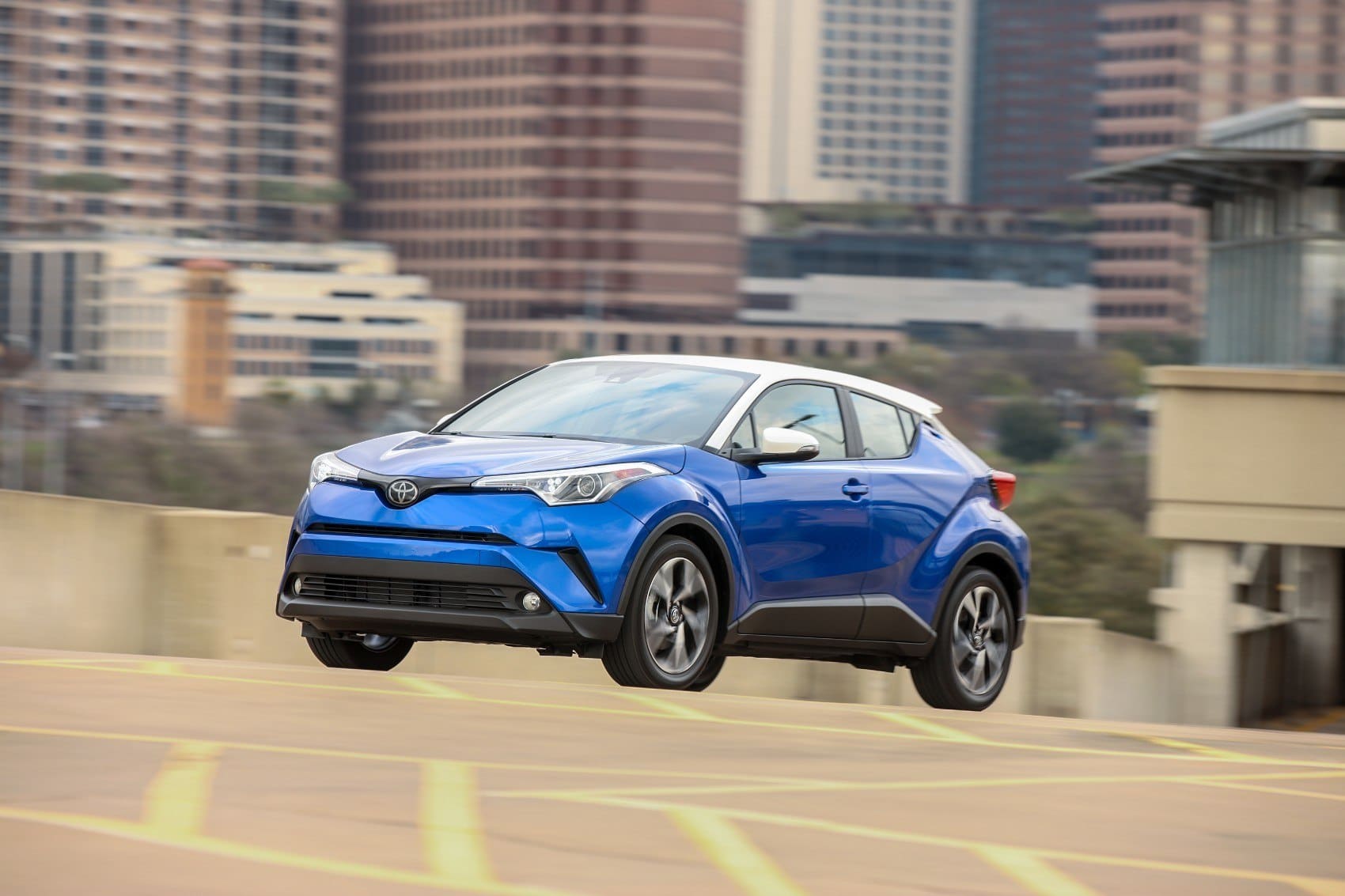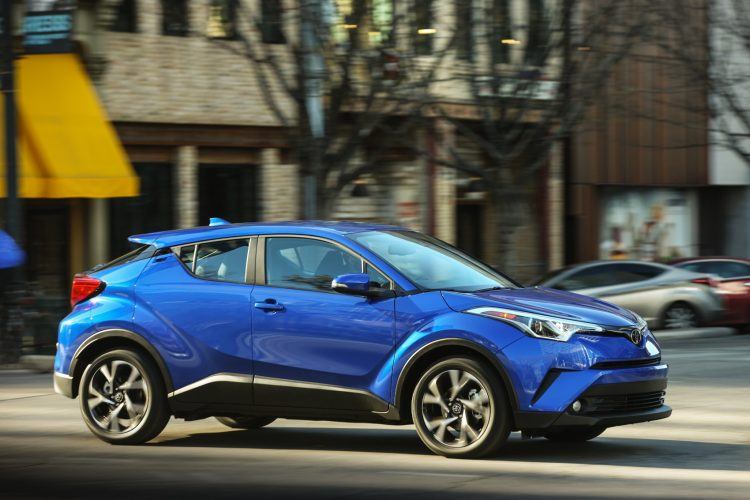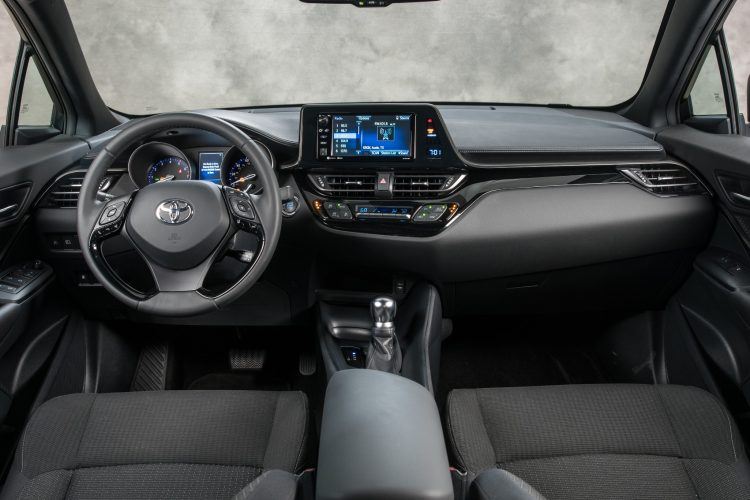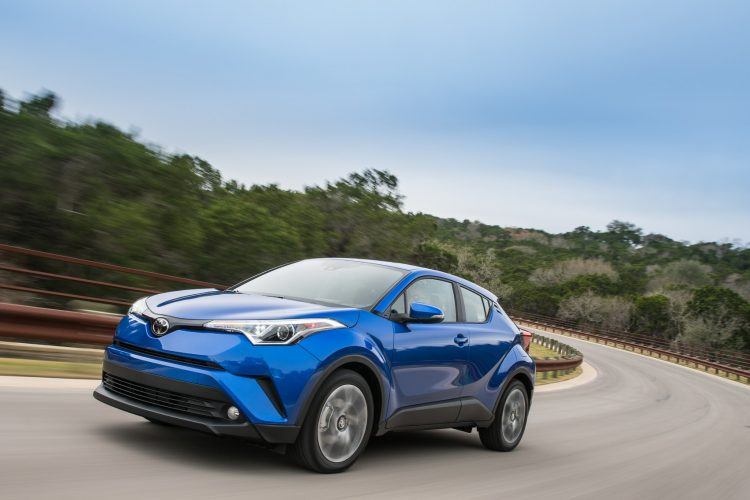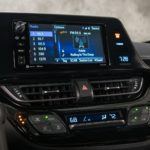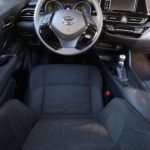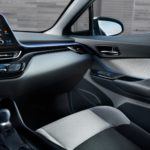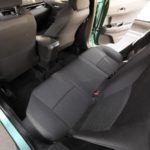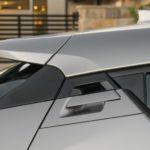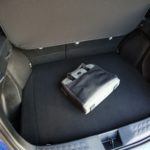When Toyota axed Scion, we thought the fun models might come to an end. But the Japanese automaker now has one of the boldest new compacts in recent memory. The 2019 Toyota C-HR is for younger buyers who need a vehicle for daily commuting and weekend getaways.
The C-HR is set apart from others in the market by its stance. C-HR stands for Coupe, High Riding. It really isn’t a coupe but it looks like one with the rear door handle hidden high next to the roofline.
This week, we drove the 2019 Toyota C-HR XLE.
What’s New For 2019
The Toyota C-HR was an entirely new crossover last year although feature availability is slightly revised. For 2019, the C-HR gets new LE and Limited trims; Apple CarPlay is now standard, along with an optional factory navigation system.
Features & Options: Plenty For The Drive
The 2019 Toyota C-HR XLE ($22,980) comes with fabric seat upholstery, 18-inch alloy wheels, dual-zone climate control, a seven-inch touchscreen display, leather-wrapped steering wheel, and a cargo cover. The power-folding mirrors contain turn signals.
Standard safety and convenience features include automatic high beams, adaptive cruise control, brake hold at stoplights, lane keeping assist, and forward collision warning with automatic emergency braking. Blind-spot warning, rear cross-traffic alert, and a rearview camera are also included.
Our tester came with the optional Audio Plus App suite ($685) which included Entune 3.0 audio, HD radio, and Toyota Connected Services. Total MSRP including destination: $24,710. By comparison, the 2019 Toyota C-HR starts at $20,995.
Interior Highlights: Enter The MeZone
Compared to other small hatchbacks, the C-HR’s cabin scores high with quality materials and some soft-touch surfaces. The all-black cabin is quite spacious and wider than we expected. The front seats are comfortable and taller drivers won’t have a problem finding a good cruising position.
Along with the contemporary exterior styling, the cabin will appeal to younger buyers. The central control pod is called MeZone and for good reason. The seven-inch touchscreen blends nicely with the physical knobs, controls, and switches. Attractive diamond shapes are seen throughout the cabin, being molded into the plastic lower door panels and stitched into the headliner fabric.
In the back, there is seating for three, but unlike many small hatchbacks only suited for two adults, three can actually fit in the back without undue discomfort. Rear passengers sit a bit higher too, which means a more comfortable position with some extra foot space.
Cargo volume comes in at 19 cubic feet with the rear seat-back upright, growing to 32.4 cubic feet when folded. The seats will fold flat to form a handy load floor. This was perfect as we packed in grocery bags for a family get-together this weekend.
Related: The 2019 Toyota Corolla Hatchback is a compact car with attitude.
Engine & Fuel Mileage Specs
The Toyota C-HR is powered by a 2.0-liter four-cylinder, producing a paltry 144 horsepower and 139 lb-ft. of torque. Coupled to a continuously variable transmission (CVT), front-wheel drive is the sole configuration. We think the C-HR would benefit from an all-wheel drive option. Having it might attract additional buyers who live in colder climates.
The C-HR gets an EPA-estimated 27/31 city/highway and 29 combined mpg. Though adequate, those figures hardly constitute thrifty fuel economy when compared to the competition. The Subaru Crosstrek, for instance, manages an extra two mpg highway. The Crosstrek’s 2.0-liter engine/CVT combo produces more horsepower (152) and more torque (145 lb-ft.) than the C-HR’s powertrain. Plus, the Subaru offers all-wheel drive.
Driving Dynamics: Lacking In Key Areas
After settling in, we found the C-HR provides respectable handling and road-holding dynamics. We hit the tight mountain curves near Evergreen quickly, but the C-HR felt secure and kept us planted. The ride on the highway is smooth and there’s enough sound insulation to keep the drone of the CVT to a minimum.
Our biggest issue is with power output. The engine’s 144 horsepower is not enough for the high-altitude areas in Colorado we call home. We slid into Sport mode hoping for better results, but still came away unsatisfied. For those living at sea level and on the flats, however, the 2019 Toyota C-HR should be fine.
Visibility to the rear and side is difficult because of the raked roofline. That said, it doesn’t matter where you live, it will be an issue when changing lanes in heavy city traffic. Another concern we have is driving the C-HR through the snow. Although it did okay on the plowed roads near our Colorado home, we still would like to see the C-HR offered with all-wheel drive.
Conclusion: Still A Good Value
When Toyota cut Scion, they needed something for younger buyers. We think Toyota hit a home run immediately with the new styling. We hope now that Toyota will address the performance issues by bumping up the horsepower and adding an all-wheel drive option. Regardless, our 2019 Toyota C-HR XLE came well-equipped, but any of the available trim levels are a good value for those who don’t need all-wheel drive.
Denis Flierl has invested over 25 years in the automotive industry in a variety of roles. Follow his work on Twitter: @CarReviewGuy
2019 Toyota C-HR Gallery
Photos: Toyota Motor Sales, U.S.A., Inc.

